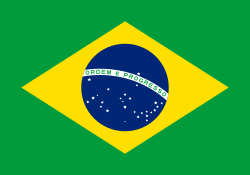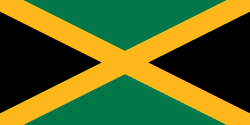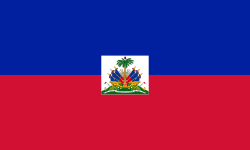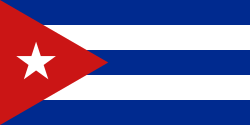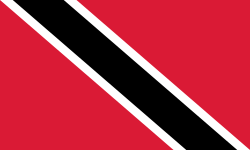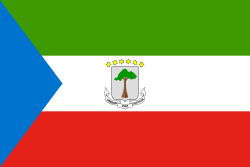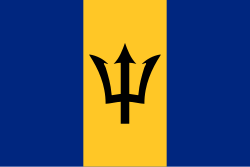Igbo (folk)
| Regioner med betydande antal | ||||||||||||||||||||||||||||||||||||||||||
|---|---|---|---|---|---|---|---|---|---|---|---|---|---|---|---|---|---|---|---|---|---|---|---|---|---|---|---|---|---|---|---|---|---|---|---|---|---|---|---|---|---|---|
| ||||||||||||||||||||||||||||||||||||||||||
| Språk | ||||||||||||||||||||||||||||||||||||||||||
| Religion | ||||||||||||||||||||||||||||||||||||||||||
Traditionellt: Traditionella igboreligioner. | ||||||||||||||||||||||||||||||||||||||||||
| Besläktade folkgrupper | ||||||||||||||||||||||||||||||||||||||||||
|
Igbo eller ibo (igbo: Ṇ́dị́ Ìgbò) är en av de större etniska grupperna i Afrika, och utgörs av ett tiotal miljoner människor. De flesta igbo bor i sydöstra Nigeria, där de är en av de största etniska grupperna, men samtidigt starkt fragmenterade i olika undergrupper. Igbo finns också i stort antal i Kamerun och Ekvatorialguinea. En mindre del av befolkningen bor i andra afrikanska länder samt i länder utanför Afrika, som följd av invandring och den transatlantiska slavhandeln. Deras exakta antal i Afrika är okänt. Deras språk är igbo (igbo: Ásụ̀sụ́ Ìgbò) som omfattar hundratals olika dialekter och igboidspråk.[9]
Se även
Källor
- ^ https://www.cia.gov/library/publications/the-world-factbook/geos/ni.html Arkiverad 29 januari 2018 hämtat från the Wayback Machine. CIA World fact book, but sources vary widely about the population. Mushanga, p. 166, says "over 20 million"; Nzewi (quoted in Agawu), p. 31, says "about 15 million"; Okafor, p. 86, says "about twenty-five million"; Okpala, p. 21, says "around 30 million"; and Smith, p. 508, says "approximately 20 million".
- ^ http://www.yorku.ca/nhp/areas/ethnic.htm "As is now widely known, enslaved Africans were often concentrated in specific places in the diaspora...USA (Igbo)" - York university - Ethnic Identity in the Diaspora and the Nigerian Hinterland.
- ^ http://books.google.com/books?id=yEHVCsSFRUcC&source=gbs_summary_s&cad=0 Identity in the Shadow of Slavery By Paul E. Lovejoy Pg.58 "Social and cultural artifacts termed "Ibo" or "Eboe" in the New World are signs of a historical Igbo presence, varied in different times and places... historical understandings of what it meant to be Eboe...in Jamaica"
- ^ Jamaica in Pictures By Janice Hamilton "Their ancestors belonged to many ethnic groups in West Africa, including the Ibo, Dahomey, Yoruba, and Ashanti." - Preview of book
- ^ http://www.yorku.ca/nhp/areas/ethnic.htm "St. Domique/Haiti (Aja/Fon, Yoruba, Igbo)" - York university - Ethnic Identity in the Diaspora and the Nigerian Hinterland.
- ^ http://www.liberiapastandpresent.org/19thcColonist.htm#E.J.Roye Arkiverad 23 februari 2004 hämtat från the Wayback Machine. E.J. Roye, an example of an Igbo Liberian also see Edward Wilmot Blyden (by Atlantic slave trade and migration)
- ^ [a b c] http://www.joshuaproject.net/peoples.php?rop3=103963 Joshua Project - Igbo Ethnic people in all Countries
- ^ http://www.bbc.co.uk/history/british/empire_seapower/barbados_02.shtml "Nigeria also provided slaves for Barbados, the Yoruba, Efik, Igbo and Ibibio being the main ethnic groups targeted."
- ^ Wikipedia på engelska
Media som används på denna webbplats
Flag of Jamaica. “The sunshine, the land is green, and the people are strong and bold” is the symbolism of the colours of the flag. GOLD represents the natural wealth and beauty of sunlight; GREEN represents hope and agricultural resources; BLACK represents the strength and creativity of the people. The original symbolism, however, was "Hardships there are, but the land is green, and the sun shineth", where BLACK represented the hardships being faced.
Trinidad och Tobagos flagga
Flag of the Ivory Coast, written by Jon Harald Søby, modified by Zscout370. The colors match to what is reported at http://fotw.vexillum.com/flags/ci.html.


